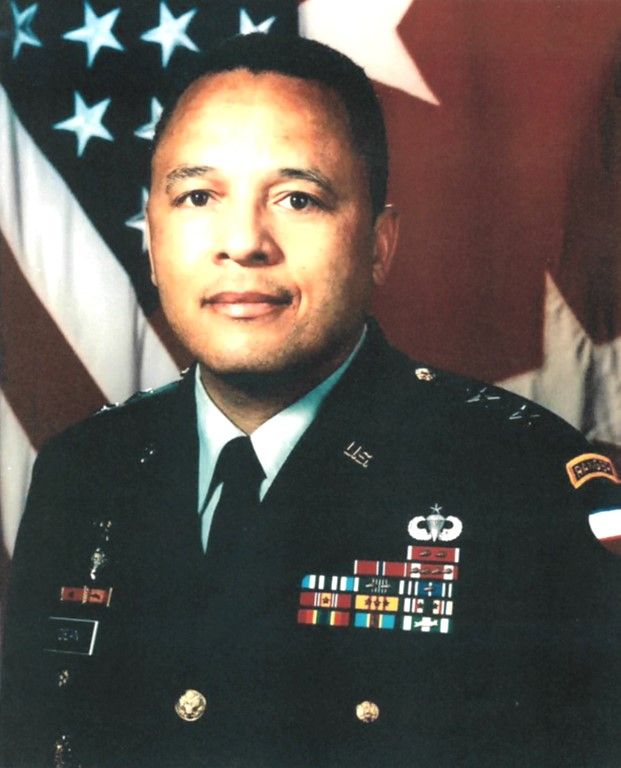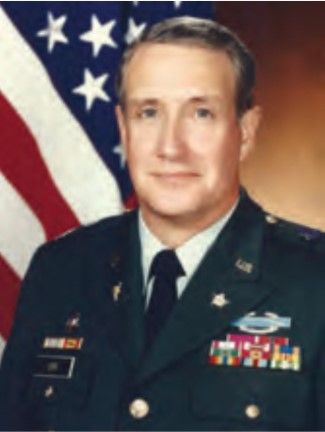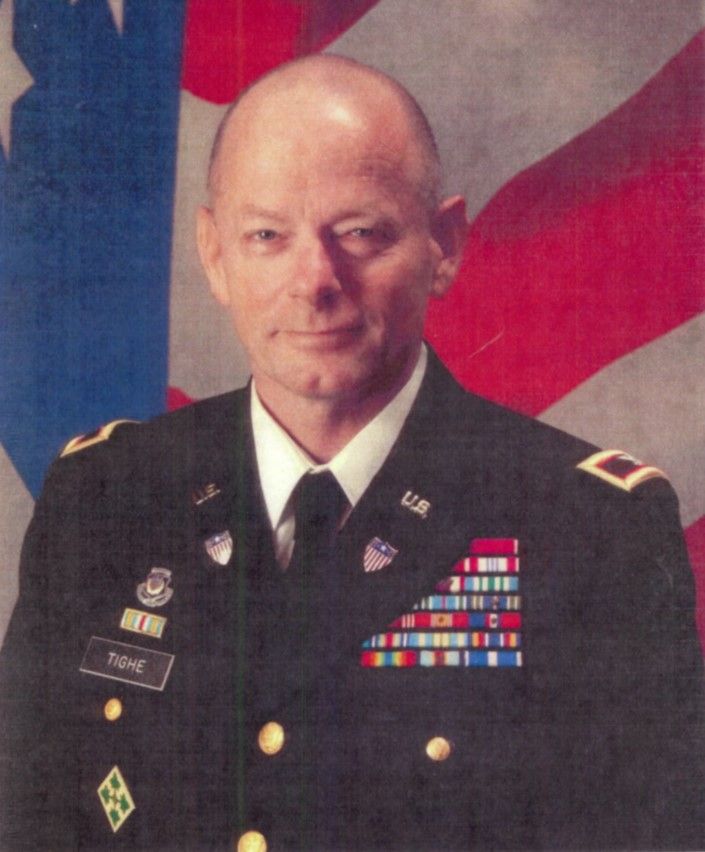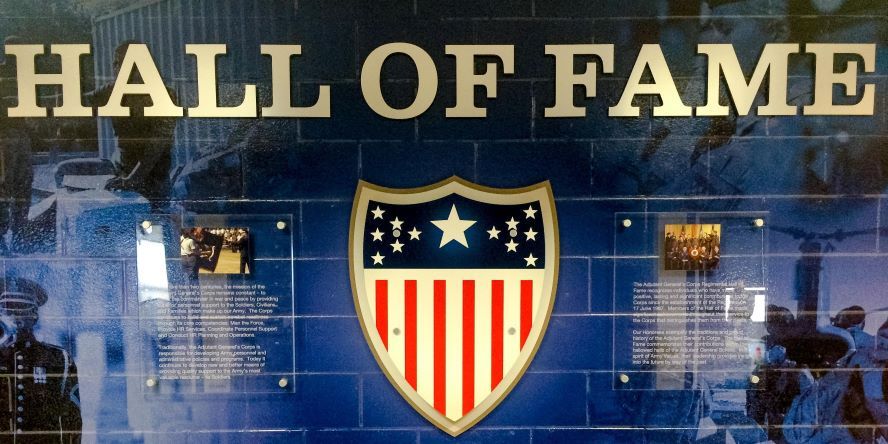AG Corps HOF Class of 2016

MG (Ret) Arthur T. Dean’s significant Army assignments include: Commander, U.S. Army 1st Recruiting Brigade, U.S. Army Recruiting Command, Fort Meade, MD; Director of Enlisted Personnel, U.S. Army Personnel Command, Alexandria, VA; Deputy Chief of Staff for Personnel and Installation Management, U.S. Army Forces Command, Fort McPherson, GA; and Director of Military Personnel Management (DMPM), Army G1, The Pentagon. As the Army’s DMPM, he was responsible for officer and enlisted personnel management for the Total Army, recruiting for the Active and Reserve components, and managing the Total Army institutional training program. In addition, MG (Ret) Dean was the principal agent for integrating manpower, personnel, training, and resourcing plans and policies as they impacted the submission of the POM and budget for Military Pay Appropriation – a $20.1 billion account. Additionally, he served six years with the 82nd Airborne Division and earned the distinction of U.S. Army and Republic of Vietnam senior parachutist and an Army Ranger.

MG (Ret) Reuben D. Jones’ significant Army assignments include: Commander, U.S. Army Enlisted Records and Evaluation Center (EREC), Indianapolis, IN; Deputy Director, Military Personnel Management, Army G1, The Pentagon; The Adjutant General of the Army, Alexandria, VA; and Commander, Family and Morale, Welfare, and Recreation (FMWR) Command, San Antonio, TX. As Commander, FMWR Command, a subordinate command of IMCOM, he was responsible for the daily oversight of a $3.2 billion global MWR Program; primarily the $1.7 billion Army Family Programs and $1.3 billion Army Banking Investment and Retirement Fund. He also provided exemplary hospitality and recreation support to the Army’s 72 installations worldwide. While at EREC, MG (Ret) Jones fielded the Automated Selection Board System, the one-page Enlisted Record Brief (ERB), and modernized the Evaluation Report Process.

COL (Ret) Billy J. Orr’s career assignments include: G1/AG, 1st Infantry Division; Commander, 43rd AG Reception Battalion; Commander, 5th Personnel Group; Chief, Enlisted Distribution Division, Total Army Personnel Command; Deputy Director, Enlisted Personnel Directorate, Total Army Personnel Command; and Chief of Staff, Total Army Personnel Command (TAPC). As the TAPC Chief of Staff, COL (Ret) Orr ensured the staff and directorates, including PERSINSD of PERSCOM, prepared the many legacy automated HR systems for continued operations for the Y2K challenge. The preparations were so thorough and complete that no loss of services occurred during this changeover of the many automated time-keeping systems. COL (Ret) Orr also drafted the charter that laid the groundwork for the future consolidation of HRC Alexandria with HRC St. Louis.

COL (Ret) David E. Tighe’s career assignments include: G1/AG, 1st Infantry Division; Commander, SHAPE Battalion, U.S. Army NATO; Commander, 502nd Personnel Services Battalion; Chief, Operational Army Branch, Human Resources Command (HRC); and Chief, Enlisted Readiness Division, HRC. While at HRC, his leadership and HR acumen enabled the expert management of the Army’s enlisted force during a significant Army transformation period while fighting multiple overseas contingency operations. With the onset of Personnel Services Delivery Redesign (PSDR) starting in 2005, COL (Ret) Tighe executed detailed strategic communications to Commanders in the field, which led to the successful implementation of Brigade level Personnel Readiness Management across the entire operational Army.

LTC (Ret) John W. Jackson. In the early 1980s, all Army branches came under increased scrutiny for their space and functional requirements due to significant force modernization. At the time, the Army Deputy Chief of Staff for Personnel conducted in-process reviews (IPRs) on a continuing basis, down to language identification code (LIC) level of detail to ensure the spaces would be necessary for a ‘modernized force’ and that the spaces could be justified as cost-beneficial in the ‘new force.’ There was significant pressure to reduce spaces in all Combat Service Support branches to free up spaces for the Combat Arms. LTC (Ret) Jackson’s herculean efforts as AG Branch Chief defended the Corps’ spaces and functions for the Branch and was conveyed as one of the best-managed branches in the Army – providing a dynamite return on investment for the future. Had it not been for the actions of LTC (Ret) Jackson, the AG Corps could be only a shell of what it is today.

SGM (Ret) Thomas S. Gills served as the Army G-1 SGM before his retirement in June 2013. While serving as the Chief, Enlisted Promotions, he was the U.S. Army Human Resources Command’s lead agent responsible for the design and development of a fully automated promotion point worksheet for use across the Regular Army and United States Army Reserve in support of determining promotion points for Soldiers competing for promotion to Sergeant and Staff Sergeant. This revolutionary change drastically eliminated thousands of HR man-hours expended through the manual calculation of promotion point scores. Additionally, the new automated worksheet capitalized on existing personnel systems, automatically calculating promotion point scores for tens of thousands of Soldiers annually and automatically updating those scores as changes to the Soldier’s personnel record.
AG Corps Distinguished Member of the Corps (DMOC)
Class of 2016
COL (Ret) Lee A. Harris
COL Bruce D. Jenkins
COL (Ret) Arthur A. Strange, III
LTC (Ret) David A. Smoot
LTC (Ret) Ward D. Ward
MAJ Richard M. Strong
CW5 Aner Henriquez, Jr.
CW4 (Ret) Manuel Flores
CW4 (Ret) Maria L. McDonald
CSM (Ret) Charles E. Smith
CSM Annette R. Weber
SGM (Ret) Allen D. Clifton
SGM Linda M. Kessinger
Ms. Darcie C. Fouste
